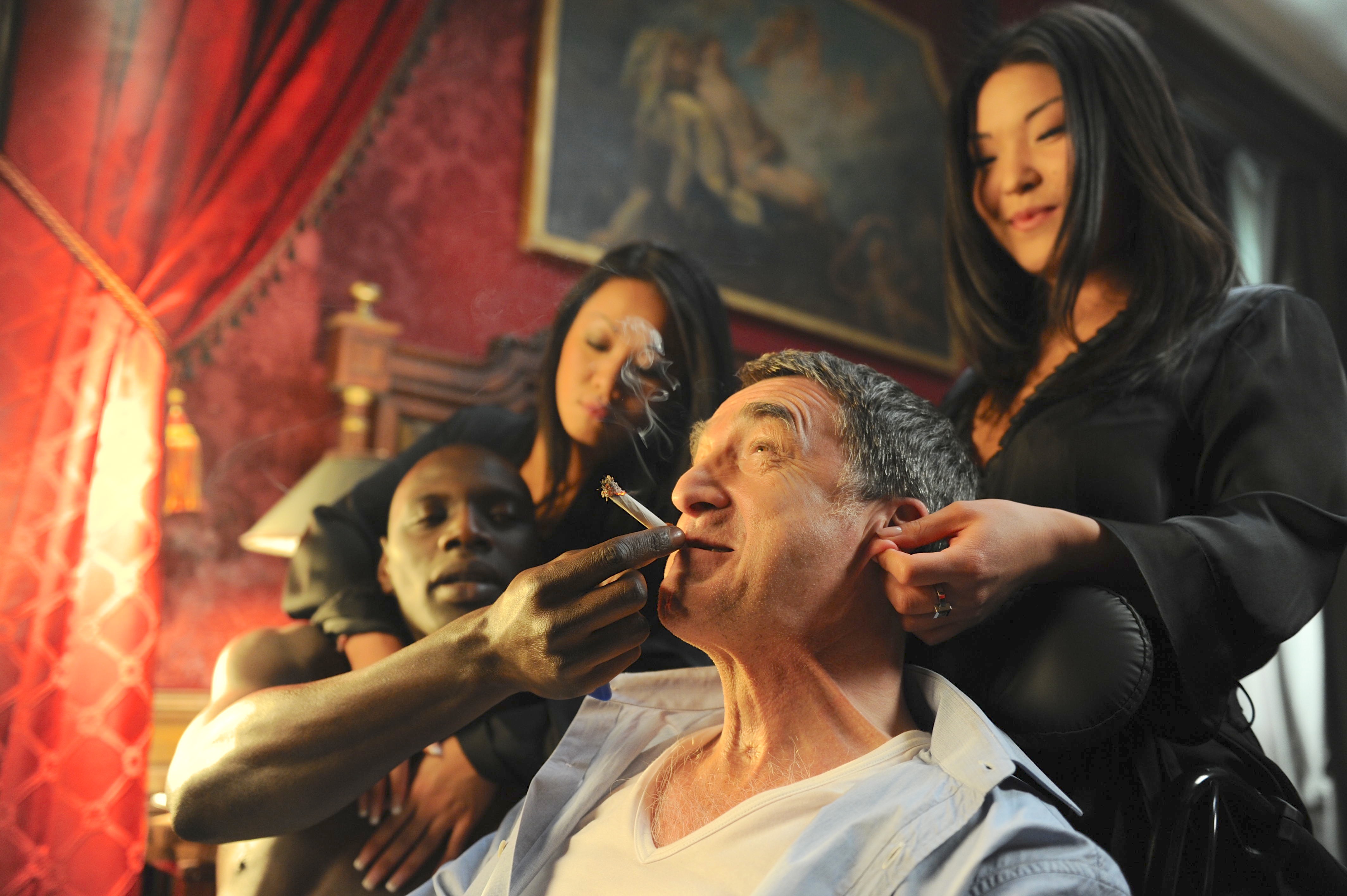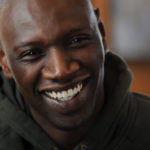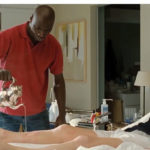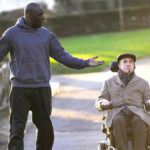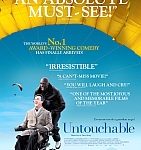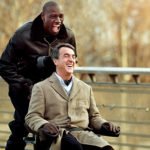Les Intouchables (Untouchable) demonstrates perfectly the iniquity of awards and gongs. It won a raft of awards around Europe and critic’s film societies, but nary a hint of an Oscar or major award, other than a deserved Best Actor César for Omar Sy in what I believe is the performance of a lifetime, certainly deserving of an Oscar. Apart from Untouchable being in French and therefore lumped in among the “films in a foreign language” category, you may justly ask why.
Granted it is not a major film, certainly not an epic like Ben Hur or a classic like Citizen Kane, but it has many simple virtues that other filmmakers would do well to note, being funny, touching, sharp and offering greater insights into human interaction than all but the finest award winners.
Untouchable focuses on the complex and evolving relationship between a quadriplegic millionaire and the young man recruited as his carer, in spite of many better qualified people turning up to the interview. The film gives us time and space to explore the subtleties of each character and go beyond the initial encounter – this is way more than merely bouncing off one another.
The psychology is three dimensional; it allows us to question how they perceive one another, why they behave as they do, how they change, what effect each has on the other over a period of time. They are an odd couple indeed, from the opposite ends of the social spectrum. So what does the aristocratic cripple Philippe (François Cluzet) see in a womanising criminal like Driss (Sy)?
Firstly, lack of pity, but perhaps also the sense of danger and excitement, someone who won’t give predictable responses, someone who will challenge him in unpredictable ways, someone who can give him a slice of real life.
After all, Driss is from a poor and rough neighbourhood with an unstable background, he knows violence, drug dealers, the worst of all worlds – and his aversion to the less pleasant aspects of care would appear to make him entirely unsuitable; but then being poor and black he is not expecting to be given a job anyway, only to get his benefit form signed so he can claim money from the State.
But Driss is highly intelligent and curious – to the extent of pouring boiling water on the older man’s legs just to confirm he has no feeling, much to the horror of Philippe’s assistant. He even persuades the otherwise conventional Philippe to smoke a reefer, with evident pain relief benefits. From the bare bones of an ordered but soulless life the guy from the streets coaxes some element of humanity from the man resigned to being what Ian Dury would have called a “raspberry ripple.”
Following a paragliding accident that left him crippled for life, and the early death of his much-loved wife, Philippe had not expected to regain any form of life; an early death in the lap of luxury surrounded by his loyal staff was his lot. The encounter with Driss changes life for both men. Persuading Philippe he can still be social forms a major part of Driss’s time, such that he takes no crap. Driss weans him off writing pompous letters to a woman with whom he has an intellectual, but not remotely physical relationship and eventually encourages him to meet her.
Not only does Philippe regain the ability to learn the joy of living. The film opens with Driss driving Philippe’s Maserati through the streets of Paris at high speed, until he is stopped by the police. He invents a story about Philippe suffering a seizure and needing immediate emergency care at the hospital, which Philippe backs up by mimicking a fit, complete with frothing mouth, to help Driss avoid a speeding ticket.
By exchange, Philippe wants to help Driss with his family but realises he must back off and allow Driss time to deal with his issues and fid a life beyond caring, though both men are unhappy. It does not take Driss long to return and to help Philippe – a silent acceptance of the bond of mutual care between them, but then all the most wonderful communication on screen or stage is done with few words, and the best actors can
Untouchable is based on a true story (I could have classified it in “biopics” but stuck with “foreign language” since that’s what the Academy does!) – and unusually does show the actual people at the end of the film. Philippe Pozzo di Borgo is currently 65, still alive and apparently still close friends with his “guardian devil”, ex-con Abdel Sellou, on whom Driss is based. The back story can be seen here.
This film is warmly recommended and a fine example of how with insightful acting and direction a beautifully emotional viewing experience can emerge from the slightest of stories – and about how life can spark even in the direst of circumstances. The film is delivered with rare compassion by Sy and Cluzet, very fine performances coaxed by directors Olivier Nakache and Éric Toledano. For all the plaudits from reviewers and audiences, I wish they had received the gongs they clearly deserved, but then justice goes nowhere in the film industry.

